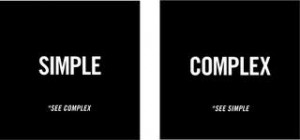 The secrets to success often lie in plain sight. They are secrets only because we chose to overlook them. Sometimes the most mundane can serve to vault us to extraordinary heights. I believe that frequently we become 1,000 percent better 1 percent at a time: slogging it out in the trenches, creating a bit of an advantage there, finding a slim edge here, discovering a small advance now and then. Then, voila! All of a sudden—after thirty years of hard work—you are an “overnight” success, or so it may seem to a media-crazed, attention-deficit-driven world.
The secrets to success often lie in plain sight. They are secrets only because we chose to overlook them. Sometimes the most mundane can serve to vault us to extraordinary heights. I believe that frequently we become 1,000 percent better 1 percent at a time: slogging it out in the trenches, creating a bit of an advantage there, finding a slim edge here, discovering a small advance now and then. Then, voila! All of a sudden—after thirty years of hard work—you are an “overnight” success, or so it may seem to a media-crazed, attention-deficit-driven world.
Under the heading of achieving spectacular results using mundane (thus too often eschewed) tools, “The New Yorker” ran a fascinating article on the power of checklists to save lives in the medical field. The opening line said it best: “If a new drug were as effective at saving lives as Peter Pronovost’s checklist, there would be a nationwide marketing campaign urging doctors to use it.”
The meta message of that opening line is that we as a society have a weakness for the easy, no-work solution, such as popping pills instead of altering our behavior. Reading the article, one understands that creating the checklist was just a first step. Cultures and habits had to change, organizational support had to exist (certain supplies were required). Under the heading of changing cultures, the existence of a checklist supported by hospital administrations gave nurses the “authority” to challenge doctors when they deviated from it. Given the power imbalance and the infamous M.D. ego, even a nurse “reminding” a doctor that he or she might possibly have forgotten something can be viewed as a challenge to authority, position, and knowledge.
To create the needed behavioral and cultural changes, the support of hospital administrations had to be real, not simply nominal or perfunctionary. One senior vice president was assigned to check monthly on the program, which required actually visiting the floors and talking with and getting feedback from the people implementing the checklist.
Lesson? Take home value? Simple things often work surprisingly well. The complexity, difficulty, and challenge is often in the EXECUTION, the follow-through. Change does not always come easily. The good news is that successfully creating positive change is more a matter of intelligent persistence than genius. It is an advantage that is available to all of us, whoever we are and wherever we are in life.
This is a classic from the NSC Blog archive. Originally posted January 9, 2008.


0 Comments